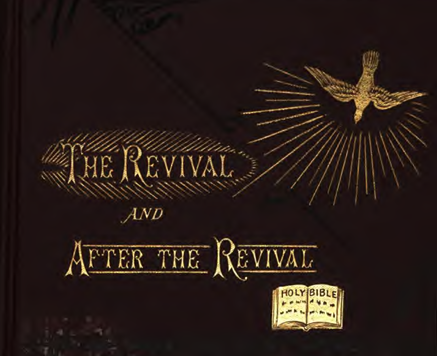Converts must stop being dependent on their circumstances, especially the strange and unusual ones that brought them to their new faith. “Milk for babes.” The glow of the revival, the songs, and the special scenes need not remain a vivid memory in order to lead a vigorous life; indeed, sometimes it may be well to forget the earliest conditions in order to achieve a worthier growth.
The Master knew well how to guard his new disciples against overestimating their first impulses. He taught them to count the cost at the beginning. Religion is enlistment. After the furor of the first parade come fatigue and fighting, hunger and wounds, longing for home, and weary waiting. Fidelity and courage can turn all these into sources of strength and inspiration, but the fervor of the first parade cannot. Young disciples should be taught to look at something other than the joy of conversion and the glory of a final coronation. Their eyes should, at the start, take in the intermediate fields of blood, the valleys of humiliation, and the hills of difficulty. The fervent evangelist and his helpers provide this vision far too rarely. As a result, there is a reaction, and reaction leads to disappointment, and disappointment leads to backsliding and doubt, and doubt leads to apathy, which leads to apostasy and sometimes fierce antagonism. The care of souls necessitates great wisdom and unwelcome fidelity, as well as slow movement and extreme caution.
By J. H. VINCENT
Updated 2023 Nathan Zipfel
The Revival and After the Revival – Chapter XVIII
Converts must stop being dependent on their circumstances, especially the strange and unusual ones that brought them to their new faith. “Milk for babes.” The glow of the revival, the songs, and the special scenes need not remain a vivid memory in order to lead a vigorous life; indeed, sometimes it may be well to forget the earliest conditions in order to achieve a worthier growth.
The Master knew well how to guard his new disciples against overestimating their first impulses. He taught them to count the cost at the beginning. Religion is enlistment. After the furor of the first parade come fatigue and fighting, hunger and wounds, longing for home, and weary waiting. Fidelity and courage can turn all these into sources of strength and inspiration, but the fervor of the first parade cannot. Young disciples should be taught to look at something other than the joy of conversion and the glory of a final coronation. Their eyes should, at the start, take in the intermediate fields of blood, the valleys of humiliation, and the hills of difficulty. The fervent evangelist and his helpers provide this vision far too rarely. As a result, there is a reaction, and reaction leads to disappointment, and disappointment leads to backsliding and doubt, and doubt leads to apathy, which leads to apostasy and sometimes fierce antagonism. The care of souls necessitates great wisdom and unwelcome fidelity, as well as slow movement and extreme caution.
By J. H. VINCENT
Updated 2023 Nathan Zipfel
